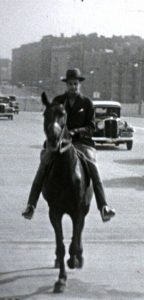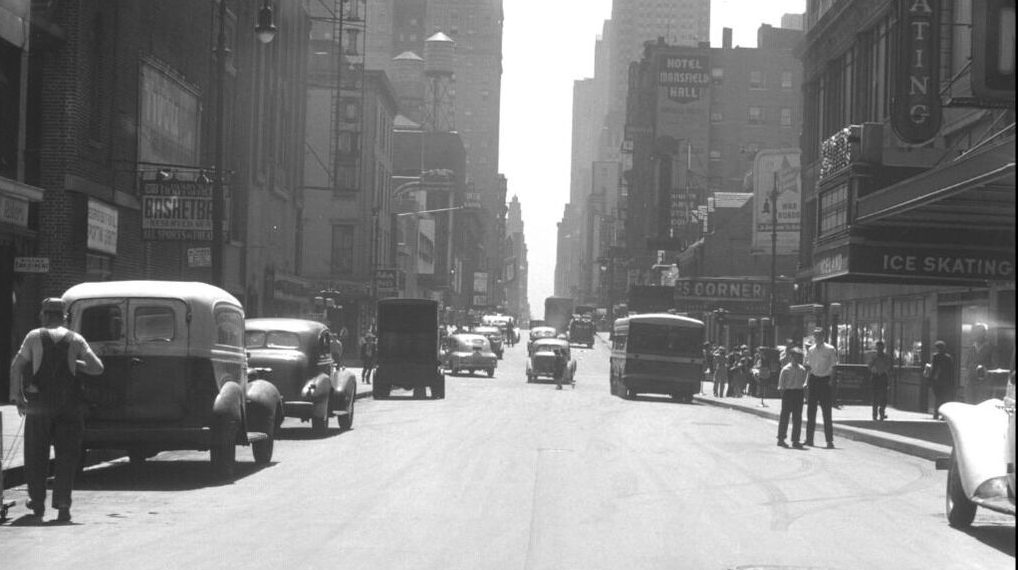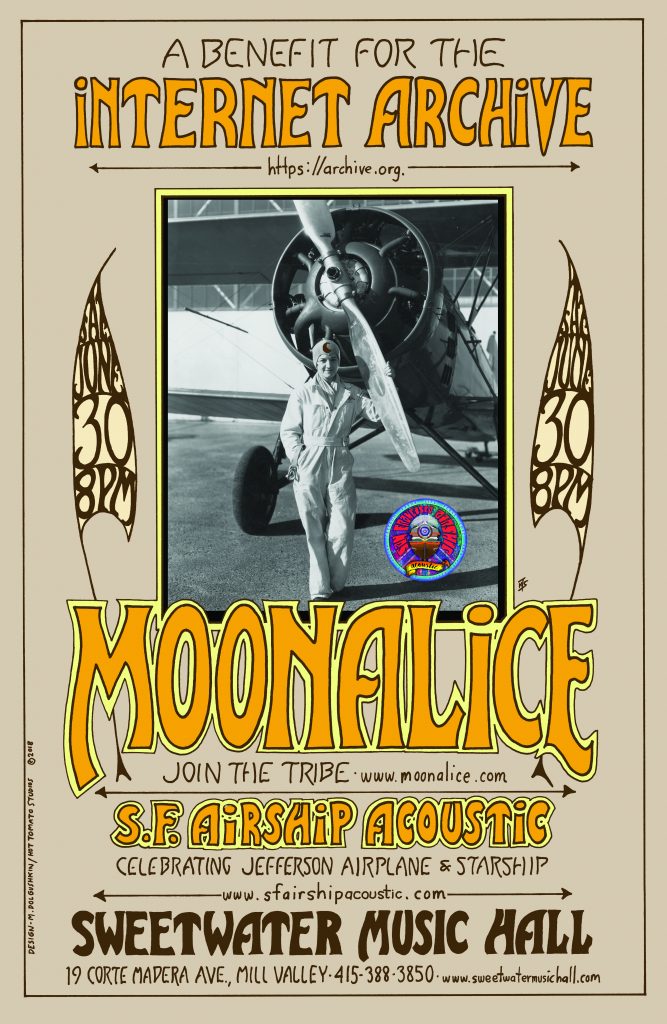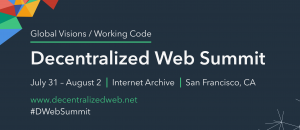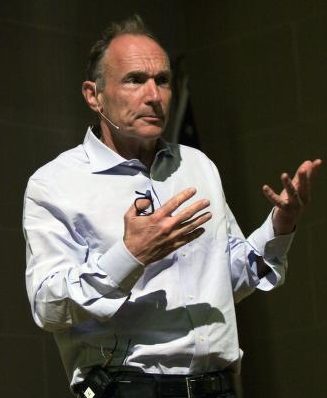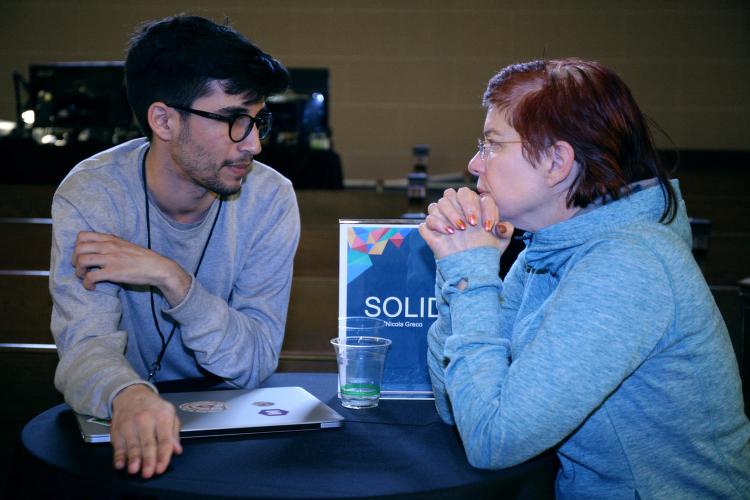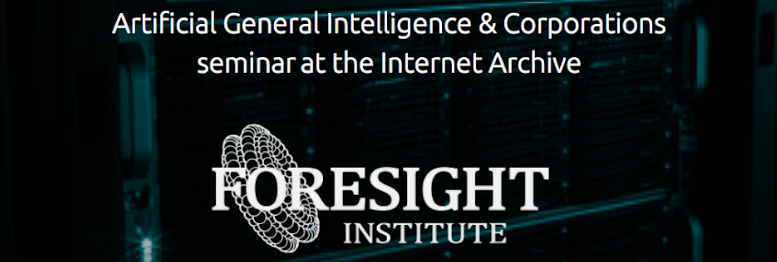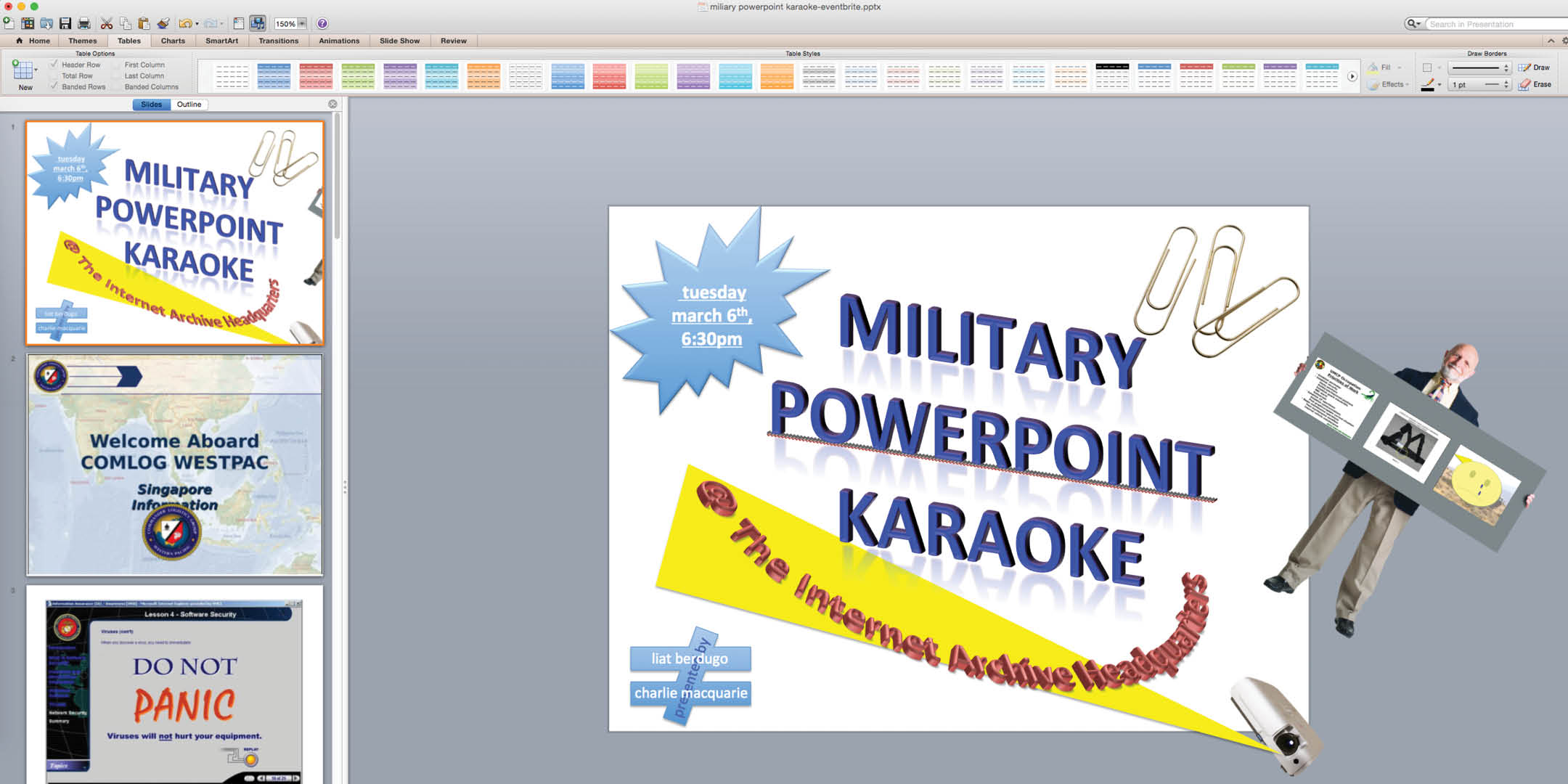by Lisa Rein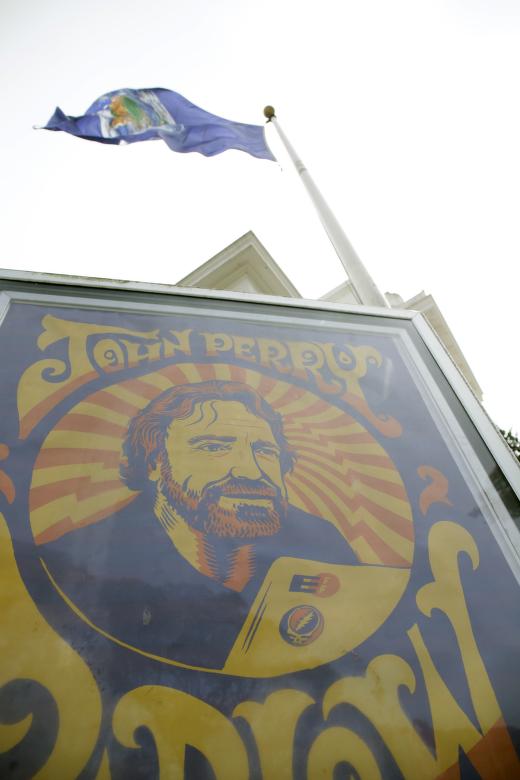
On April 7, 2018, more than 500 people gathered at the Internet Archive for a symposium on the life and work of John Perry Barlow. The program included talks, discussions and Q & A sessions with many of Barlow’s closest friends and collaborators. Speakers included: Edward Snowden, Cindy Cohn, Executive Director of the EFF, Cory Doctorow, science fiction author and activist, Mitch Kapor, Lotus 123 creator and EFF co-founder, Pam Samuelson, the Richard M. Sherman Distinguished Professor of Law at the Berkeley Law School and co-director of the Berkeley Center for Law and Technology, John Gilmore, co-founder of EFF, Shari Steele, Executive Director of Tor, Joi Ito, Director of the MIT Media Lab and Steven Levy, journalist and author of “Hackers.”
The complete video and transcript is located here.
Here are some highlights from each speaker:
 Edward Snowden:
Edward Snowden:
“What happens when we cast votes for politicians who claim certain campaign promises, and then, not only do they not deliver on them, they actually expand the surveillance programs that they pledged to terminate. And this, because I’ve gone on for a while here, is that part of John Perry Barlow’s sincerity that I admired. And this is the reason, ultimately, that led me to many of the choices in life that I have made.
When I was a young man. I was reading his “Declaration of Independence of Cyberspace,” and perhaps that may have been that first seed of radicalization. I’ve said before that I used to work for the government and now I work for the public. I’m not sure JPB ever had any other allegiance. His love was for all of us. This is why he spent that long life could have been so comfortable, so frictionless, constantly searching for the next battle. Constantly searching for the next struggle…
John Perry Barlow woke me up. He raised a message, sounded an alarm, that I think we all heard. He did not save the world. None of us can, but maybe he started the movement that will. I want to thank him for everything that he did for me, for us, for the United States, and for this world.”
Anna Barlow:

“…he felt it was important to stand up for what they were doing, but more importantly to stand up for the people’s right to know the truth. To have access to that truth; to protect the availability that the Internet offered in a way that was more raw and accessible to information than ever before. He knew that this was an imperative thing to fight for, and it was second nature for him to fight as hard as he could…The right to access it and the pioneering of the Internet as we know it. So thank you, dad, for all of those important things of vital importance now more than ever to my generation, as well as to every generation to come.”
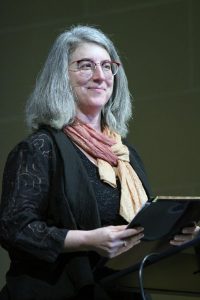 Cindy Cohn:
Cindy Cohn:
“To me, what Barlow did for the Internet was to articulate more, and more beautifully than almost anyone, that this new network had the possibility of connecting us all. He saw that the Internet would not be just a geeky hobby or a toy or only a place of the military or of the academics, which is what a lot of people at that time believed…Barlow saw the Internet as a chance for all of us to kind of start over with a clean slate and use this moment of evolution to build the layer of the mind and through that build the kind of world we wanted to live in, as opposed to the one that we had all inherited. That fit well in the mindset of the 1960s where, in the midst of terrible strife and death and war, a set of people including Barlow, were actively searching for a better way.”
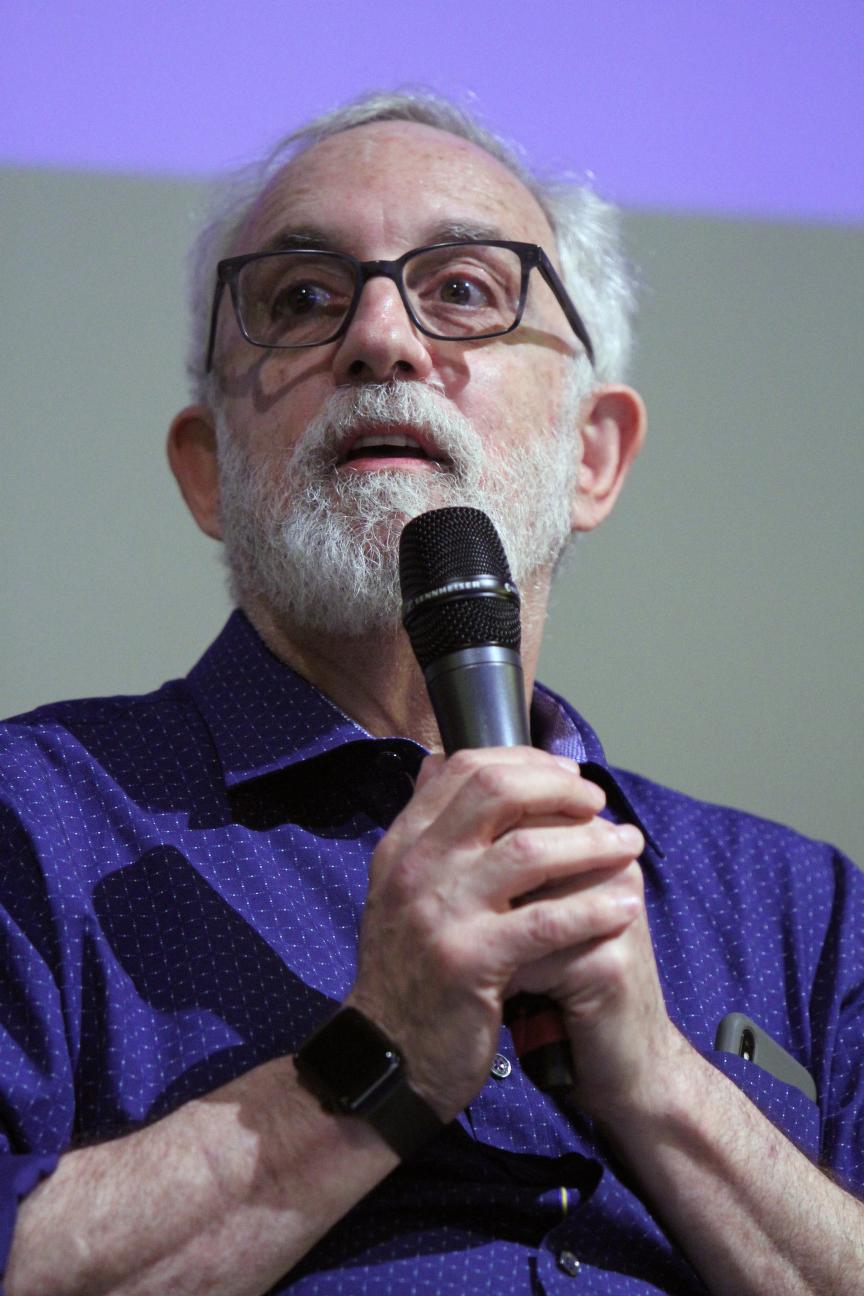 Mitch Kapor:
Mitch Kapor:
“We were invited into the CIA, this is early days, to just talk about the issues that we were working on…I’d never been there. I don’t think John had ever been at that point. And it’s this big fortress, and there are lots of signs about no recording devices and turn everything in. And John and I conferred and we devised a plan. We said, “well, can we bring in our laptops?” This is in the early 1990s. Yes, actually if you check the laptop, (they said), you can bring your laptop.
Our laptops were recording devices. This was brand new at that point that our Macs had mics in them an audio capture software and this wasn’t a common thing, and we said to each other “I wonder if the CIA knows this?”
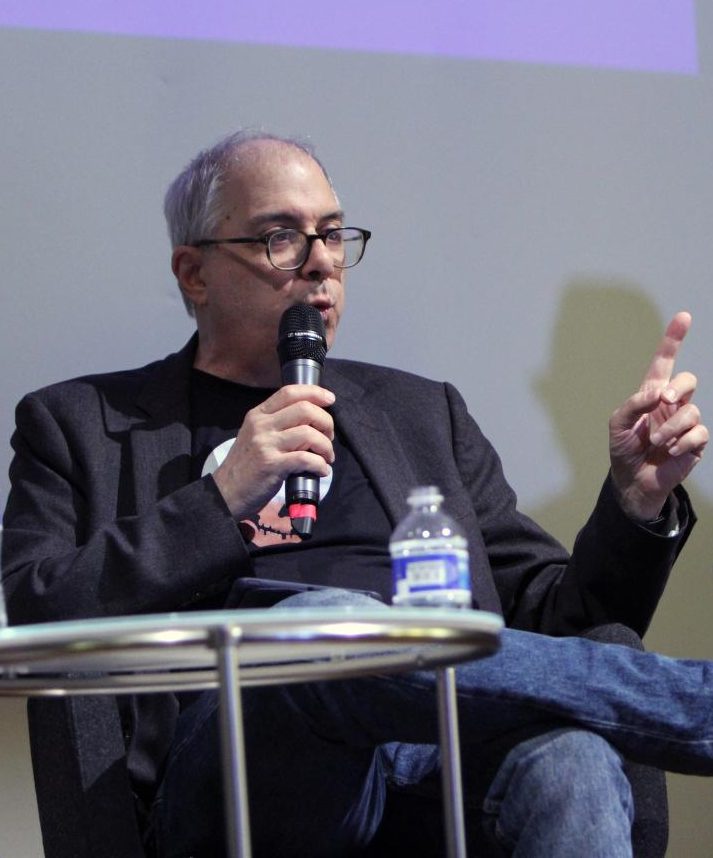 Steven Levy:
Steven Levy:
“Barlow used cyberspace as a metaphor that wound up becoming the way we all thought of the Internet, and as a matter of fact, the way we did all of our digital activities. Not just in the VR world, where you make up a world like Gibson wrote about, though that too, but occurring in a venue where you went somewhere, everywhere. Every time you made a phone call. Made an ATM transaction, or did an online chat.
So when Barlow wrote about it, he took cyberspace and our digital activities from something you did – what you did online – to where you were online. And we needed this.”
Pam Samuelson: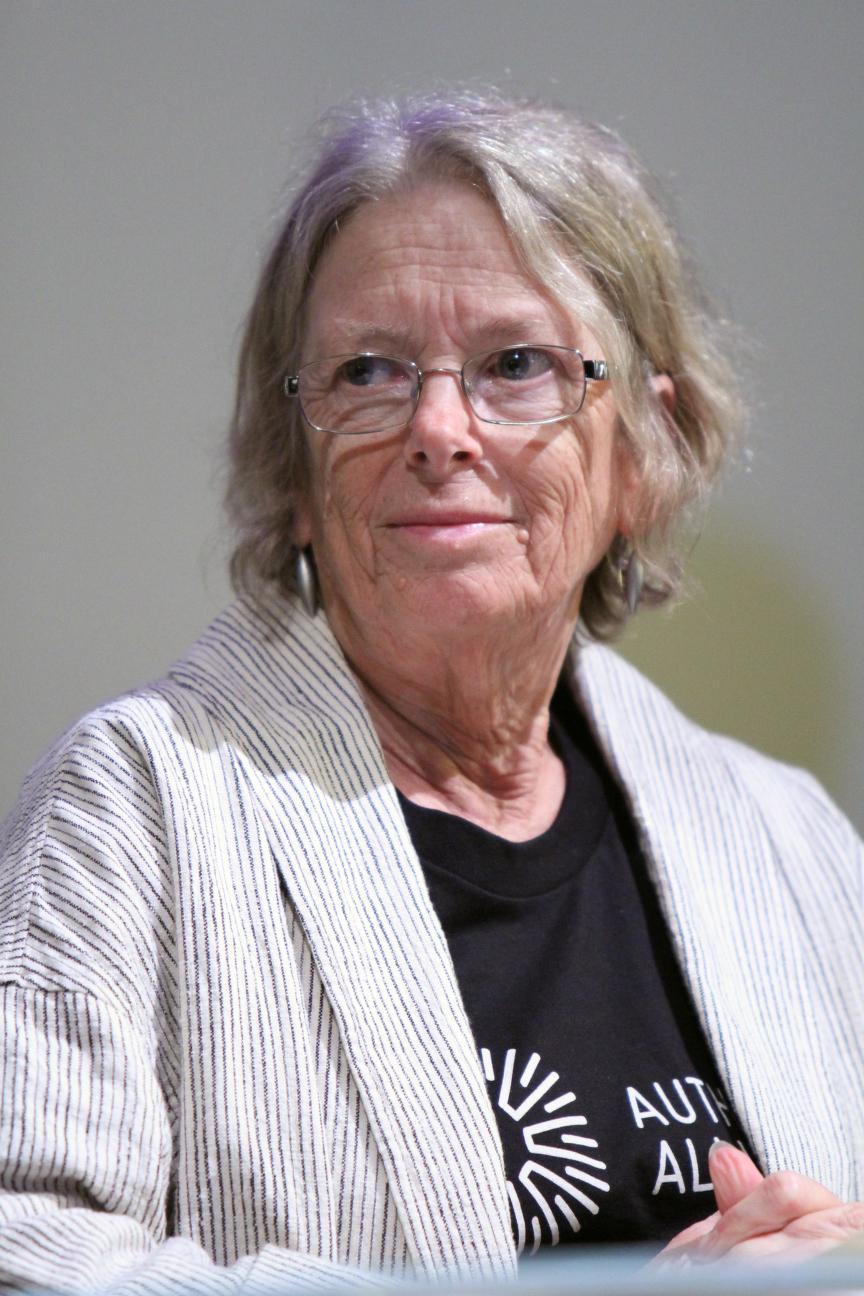
“Barlow’s major contribution in the field of copyright, and he really did, was “The Economy of Ideas” article that was published in 1994 in Wired magazine. And honestly, it’s been cited 742 times in the law review literature. Which, I’m telling you; there are people in my field who would just die to get that many citations, ok? So, Barlow made an impact on my field, but the wider impact of that article was really to galvanize a lot of people in the community who kind of came to understand that copyright – this obscure thing that we didn’t really like to think about – actually had some impact on our lives, especially on the Internet.”
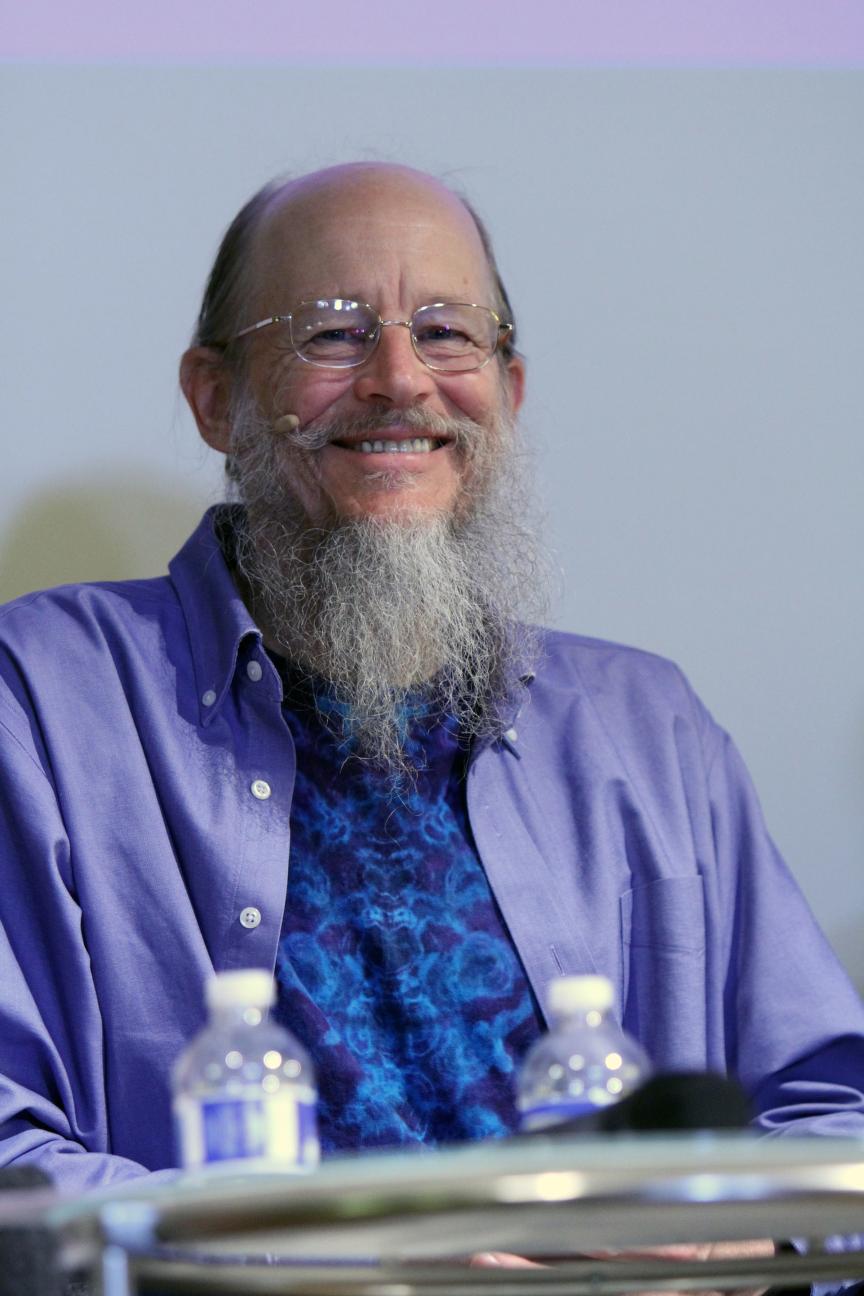 John Gilmore:
John Gilmore:
“Now, as we build and use the Internet, Barlow cautioned us to distinguish “data,” “information,” and “experience” in ways that are often forgotten today. And he had a 1990s conversation with John Brockman that later Brockman put in a book, and he explained, “data differs from information.” You can gather infinite sets of data with machines. But in order to convert data into information, the human mind has to process that dataset and find it meaningful.
That’s the important difference between information and other kinds of products. Products of the physical world are generally themselves regardless of the context. A toaster is a toaster is a toaster. In the informational world, however, each piece of information draws value from its direct relevance to the area of mind that is finding it meaningful or not meaningful. So then the next layer is “experience,” which also differs from “information.” Experience is the real-time interactive relationship between the sensorium and all the phenomena that the sensorium has available to it.”
Joi Ito: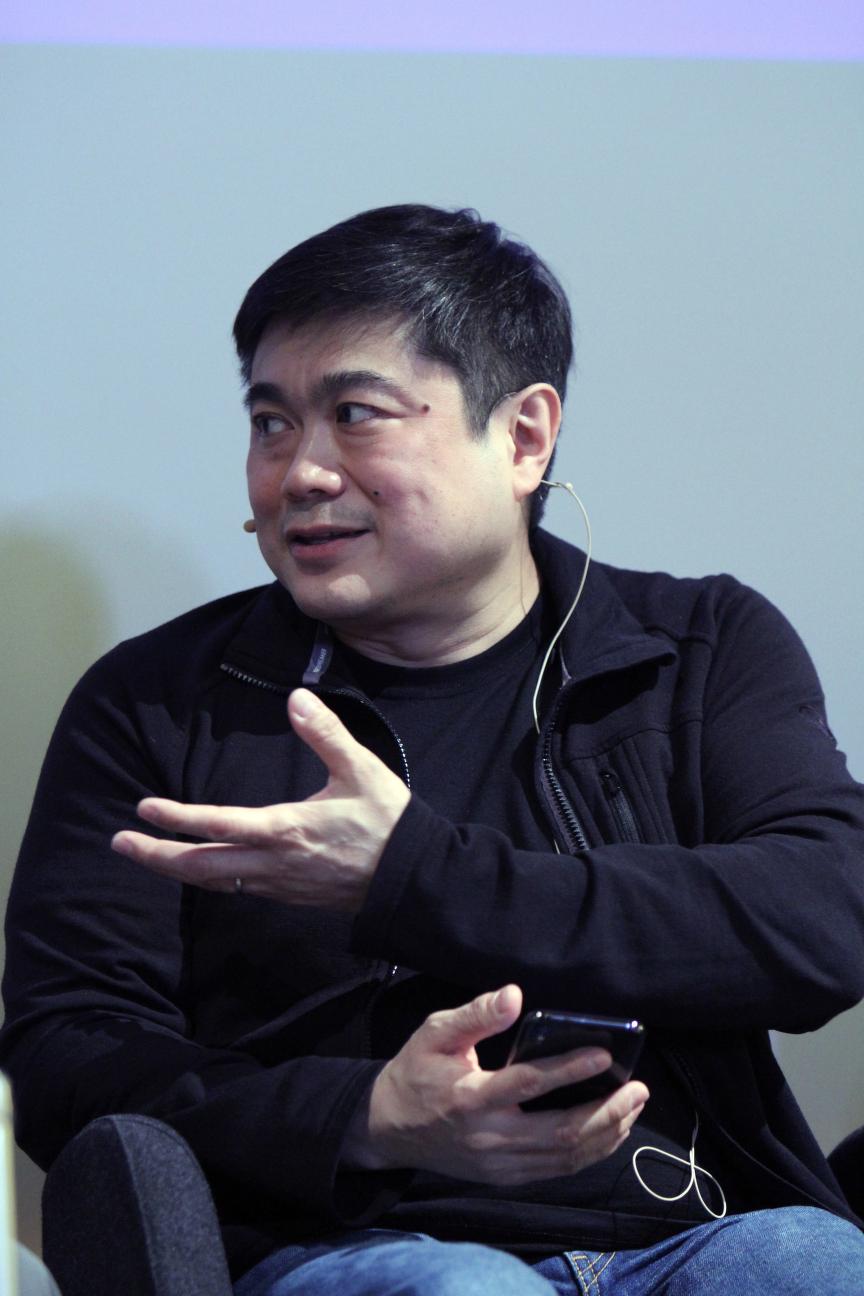
“But one of the things that for me was really important was the “Declaration of Independence for Cyberspace.” That was like a battle cry for us to rally around and it took this kind of fashion movement of the cyberpunks and turned it into a political, social movement that tied a bunch of things together. But today we look around, and it seems like kind of a distant dream…
And I still remember in the early days when we thought “we just connect everybody together and we’d have world peace” ya know, and the Internet would just solve everything. And that technology can be political. We can design it in a way that the bad guys couldn’t use it. Well turns out; it’s wrong. But I think he was aware. He was aware of this winding path, and I think the manifesto was a compass heading. This is where we’re going.”
Amelia Barlow:
“I want to say thank you for embodying these ideas that were shared today; Continuing his legacy in the way that you work, in the way that you live your lives. Also, thank you for being the immune system, and protecting us from tyranny.
When he passed he entrusted us with the most valuable asset that I could possibly imagine, which is you. All of the people in this room. All of the people around the world who he cared about and cared about him.
This vast web of infinitely interesting and radical human beings he gave to us, and I really appreciate that.”
Cory Doctorow: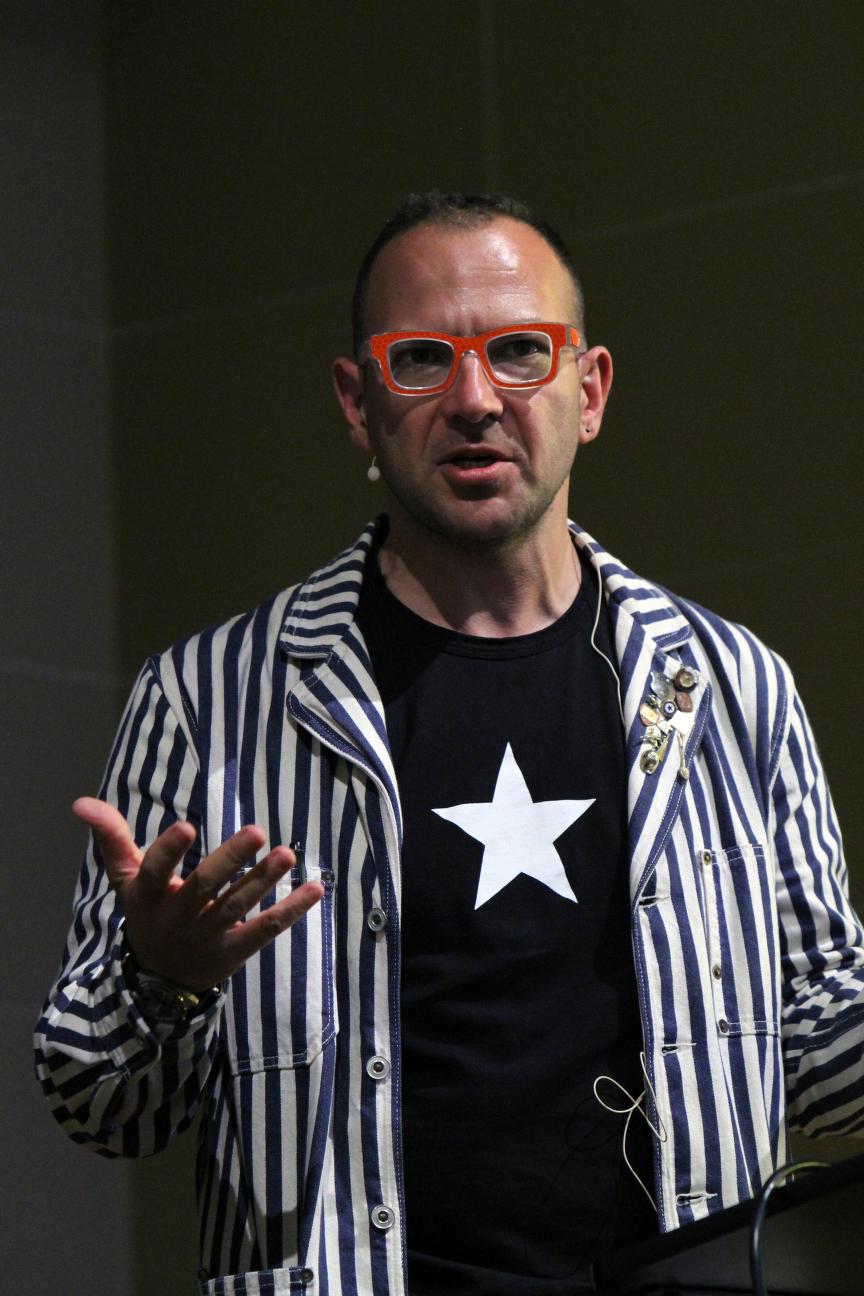
“There’s a moment at which your tactics change, if you’re an activist. It’s the “moment of peak indifference.” When the number of people who care about your issue only goes up forever more. I mean, yeah, we spectacularly failed to get people to care about privacy and the destiny of the Internet for 25 years, and that is a catastrophe. We have carbonized our atmosphere with personal information that will never go away and whose effects will be felt for decades to come and the only thing worse than that, would be to let it go to waste. To let this moment in which people realize that there’s a problem slip away from us, instead of saying not only did we know this stuff was going to happen but we can do something about it.
And so for EFF, for Barlow, for the people I see here today, old friends and people who I recognize from so many different contexts, I feel like this is our mission. It’s to make the world safe for technology but more importantly to make the technology safe for the world. To seize the means of information the way Barlow taught us to.”
To view photos from the event click here.
To watch the video and for a full speaker transcript, click here.
